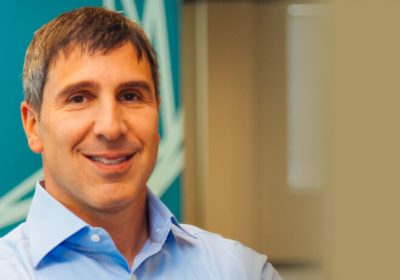
- Author: Alexandra Cain
- Posted: April 26, 2021
Technology & Finance – Why CFOs Need to Develop a Digital Mindset
By Alexandra Cain
You can have all the tech in the world. But it is likely to be rendered useless unless there are strong processes and procedures behind it, and a change management culture that supports people across the business to adopt new technologies.
This was the central message at the most recent CFO Magazine Lunchtime Live WebCast, which attracted over 230 CFOs and finance leaders, highlighting the importance of the topic.
The audience was treated to an insight into how a well-run fintech operates, in addition to popping the bonnet on one of Australia’s most successful med-tech companies.
The topic for the panel was situated in our new COVID reality, in which many finance teams are transitioning back to the office. In fact, a survey of audience members found the majority (63 per cent) were back in the office.
COVID’s legacy
86 400 CFO Belinda Hogan opened the webinar by explaining how the neobank had shifted to a hybrid working model. The online banking platform’s mission is about using technology to help Australians control their money.
Staff work in the office some days to attend meetings and innovative thinking workshops. Other days, the finance team can work from home to focus on the detail of their day-to-day accounting and compliance tasks.
“We launched the business is September 2019 and we have always been cloud-based. Many staff were already working from home, so there wasn’t too much disruption to the business when we had to start working from home at the start of the pandemic. But what we found was that it was critical to check in with everyone and make sure we were listening to people.”
The audience was also privileged to hear from Aspen Medical CFO Moazam Shah, part of a management team that has achieved extraordinary heights over the last 12 months.
Aspen is a globally-diversified health business, and its work has been instrumental in the response to COVID-19. The business operates across 16 countries and employs 3500 people. It provides critical healthcare services and is the only commercial entity that is certified by the World Health Organisation as an emergency response team for disease outbreaks.
The leading healthcare firm has assisted Australian governments in their response to the COVID-19 pandemic, helping to roll out 50 COVID beds in 37 days, providing support to elderly Australians and delivering infection control oversight for cruise ships. It is now assisting with the nation-wide COVID-19 vaccination rollout.
“This is high-velocity work,” says Aspen CFO Moazam Shah. “My role has not just been about ramping up our global finance workforce to support COVID projects and facilitate fast-moving projects. Above all, my key goal has been to drive digital transformation,” he says, adding,
“Thank goodness we have technology, which has supported us in everything we do.”
Moazam Shah, Group CFO | Aspen Medical
Belinda acknowledged the response to the pandemic was a balancing act. “It was a really trying period. The pandemic had a very real economic impact and capital and debt markets went crazy. Getting the balance right was all about constant reflection.”
Commenting on the new operating environment, SAGE’s general manager, ERP, Australia and New Zealand, Gary Katzeff, noted its research had indicated more than 90 per cent of CFOs state their role has become that of a strategic adviser.
The tech native perspective
Even though the business is a digital native, Belinda acknowledged tech is just one component of a high-performing finance function.
“You also need the right team and talent. Then, you can think about how you want to grow. It’s really important to be frank and authentic, because the way you do things today may not be the way do things tomorrow. Most importantly, you need to be able to make decisions and be geared up to run as fast as you can.”
Managing a finance team in the time of COVID – especially in health – required particular focus, says Moazam.
“We had a tremendous ramp up in workforce and our new ERP system was critical in helping our journey. We invested in ramping up our tech platform to support online training for healthcare professionals and clinicians in Australia and around the world. We’re also constantly evaluating the use of telehealth to achieve our business objectives and outcomes.”
Belinda noted one of COVID’s main changes was the widespread adoption of the Slack communication technology through the business. “It use to be used mainly by the tech team, , but that’s changed. Now, two team members might sit next to each other and chat on Slack so other people can see what they are talking about.”
Making transformation stick
Gary’s top tip for a successful digital transformation is for the finance function to fully embrace the change process. “Take full ownership of digital transformation – this is the number one indicator of a successful transformation journey.”
Belinda noted how financial performance metrics are as important to understand as customer metrics. “Understand what it means to be a customer, especially a first home loan customer.”
She says it is also essential to be flexible about budgeting. “This feels uncertain for CFOs, but you can’t be an agile business if you’re planning 12 months in advance – you will miss opportunities to become innovative and agile. That said, it’s essential to work with the business so everyone is working towards the right outcome.”
Moazam noted some of the key competencies for finance professionals to thrive in a digital world, including: knowledge of digital technologies, ability to articulate their use to wider audience in the business, an ability to learn and adapt to changes in technologies, and to a motivation to embrace new ways of working.
As for the future, the message from the CFOs and experts who took part in the panel is to embrace the pandemic-inspired new way of operating.
Says Belinda: “Break down everything step-by-step and don’t be daunted – you’re only constrained by your imagination.”








